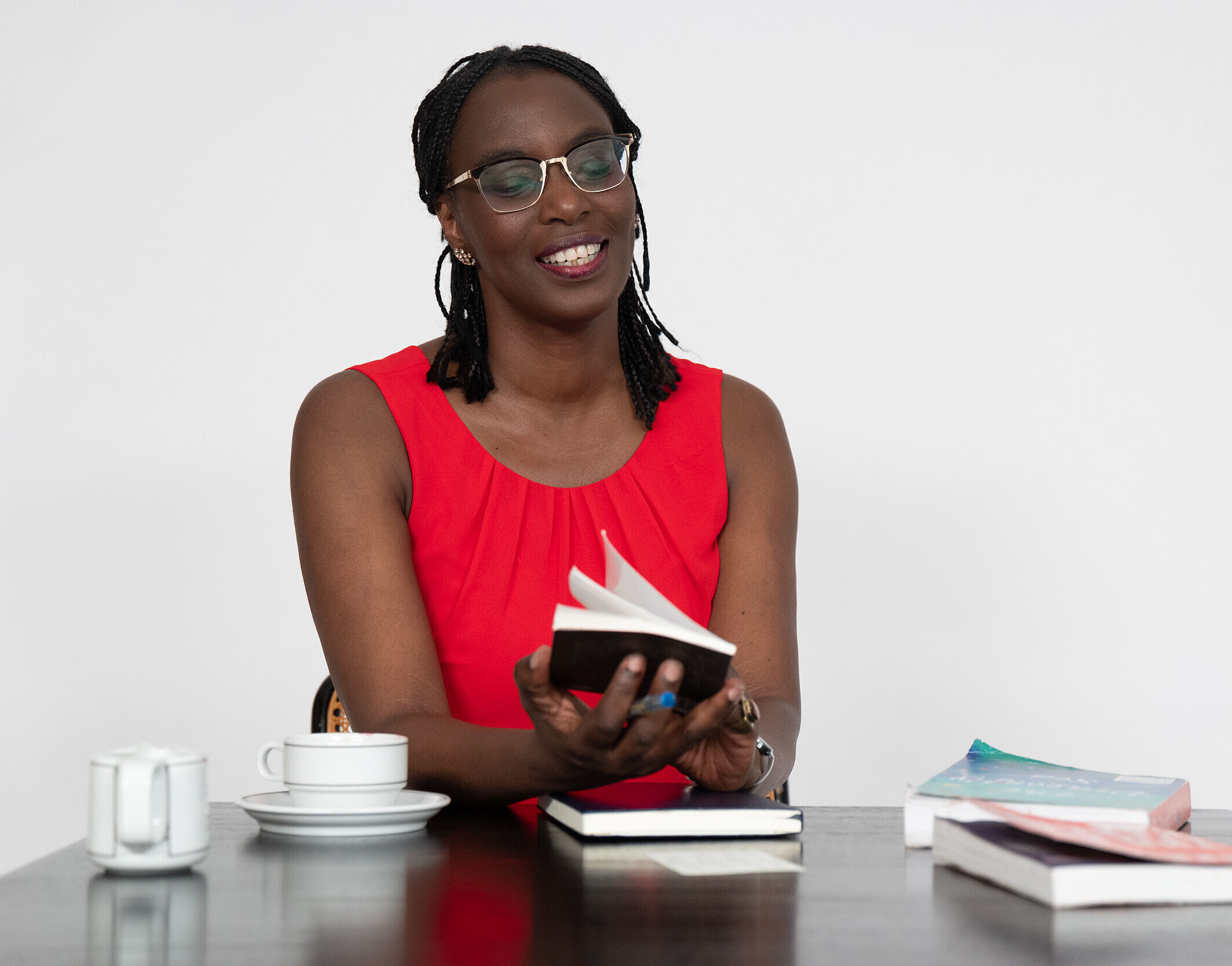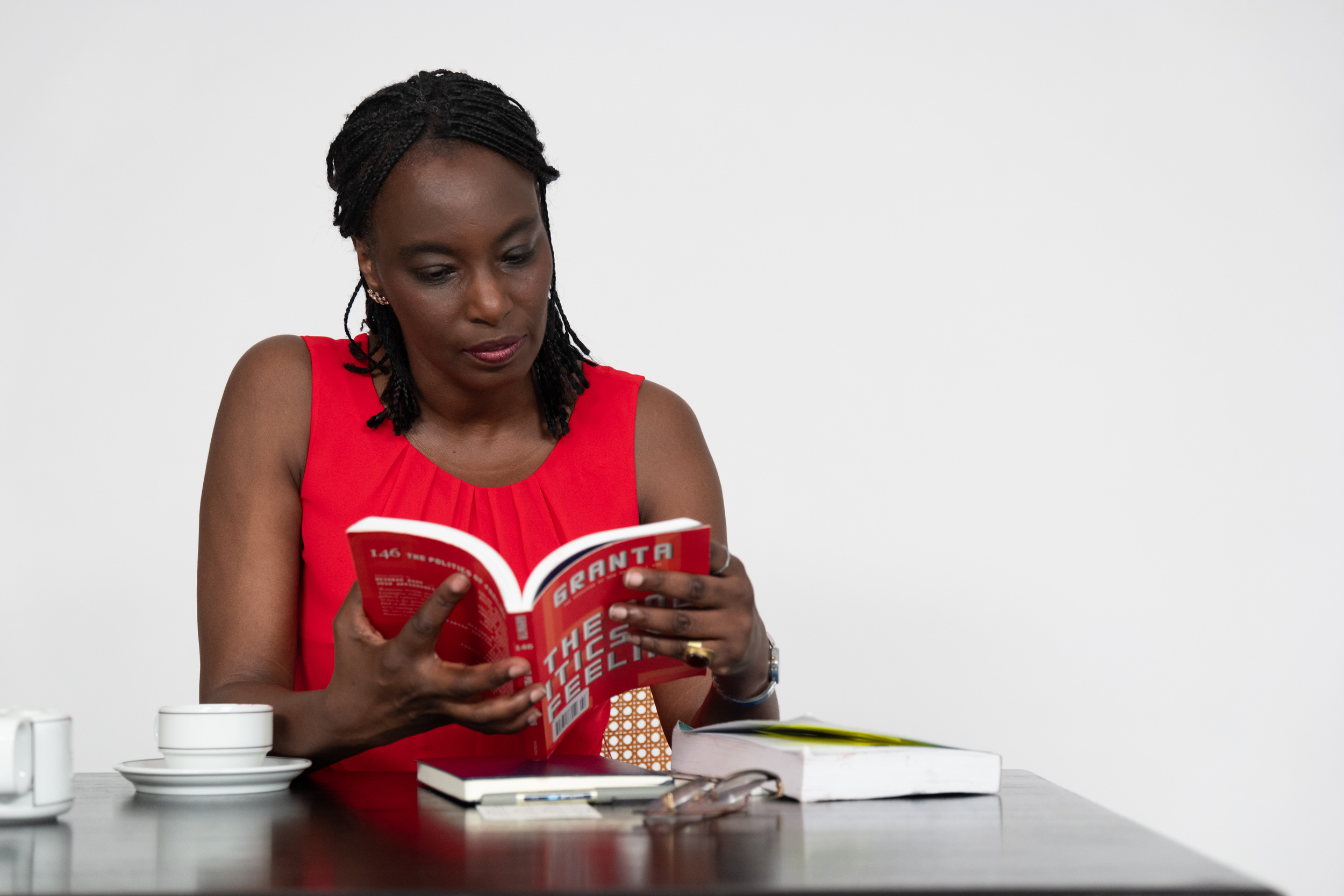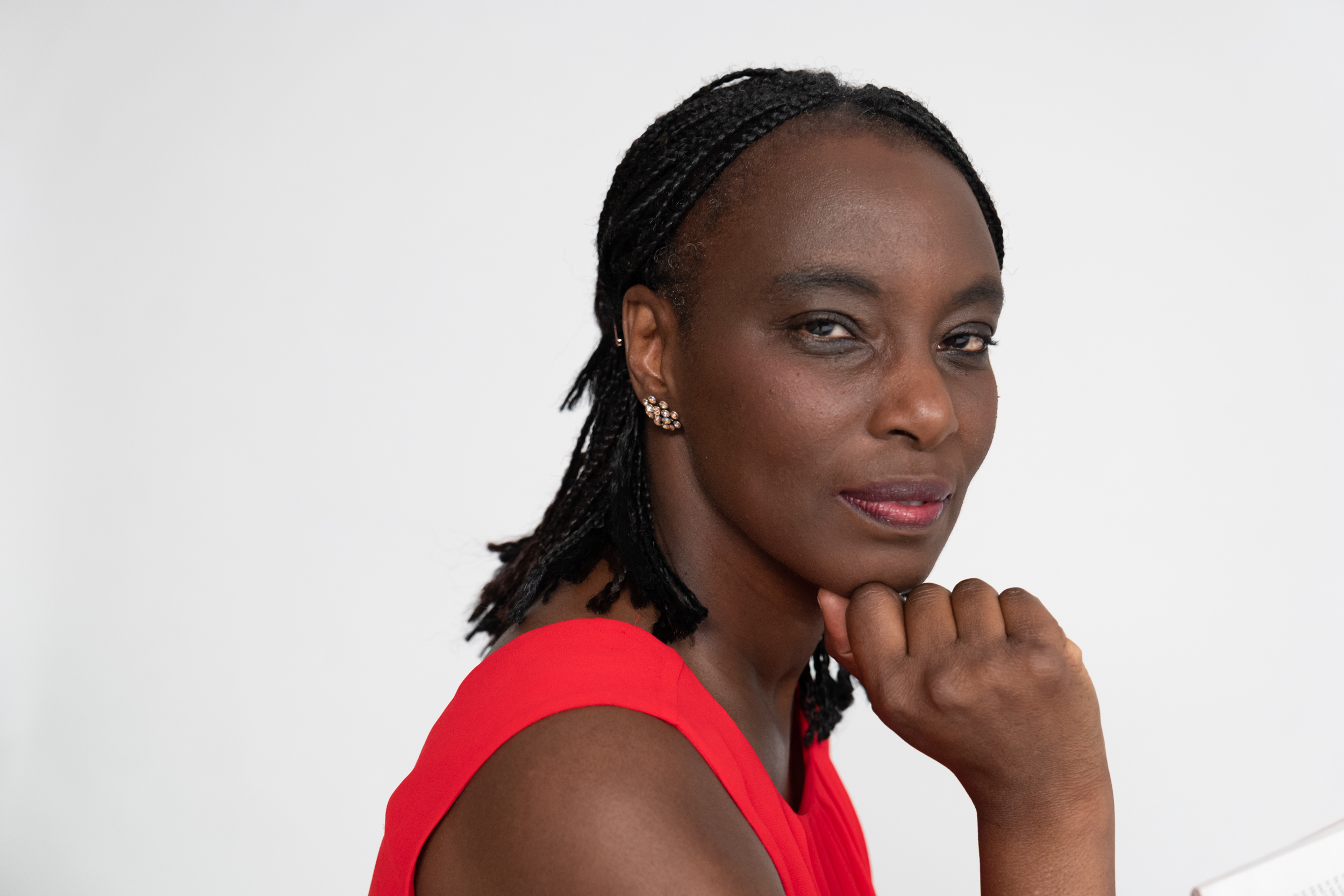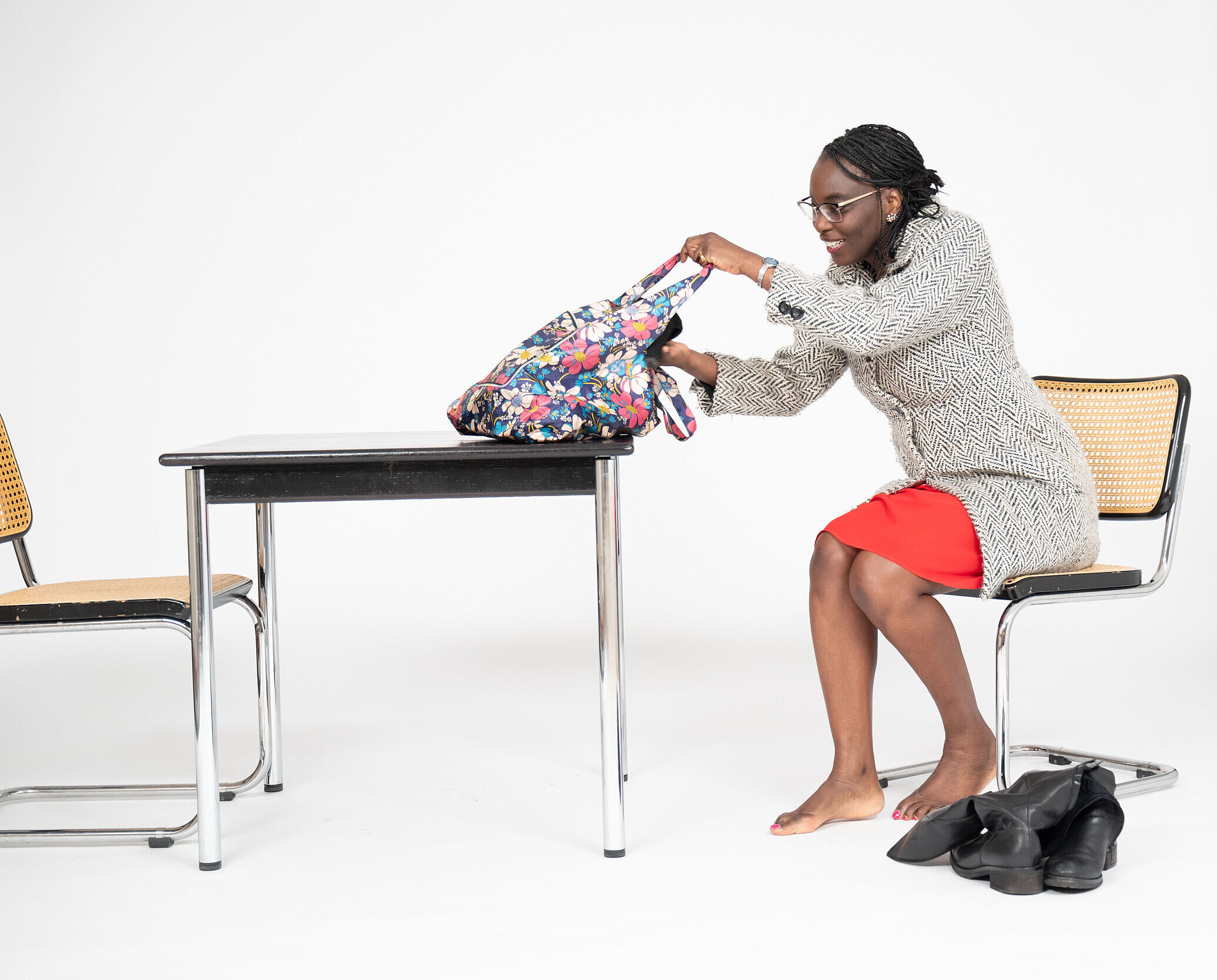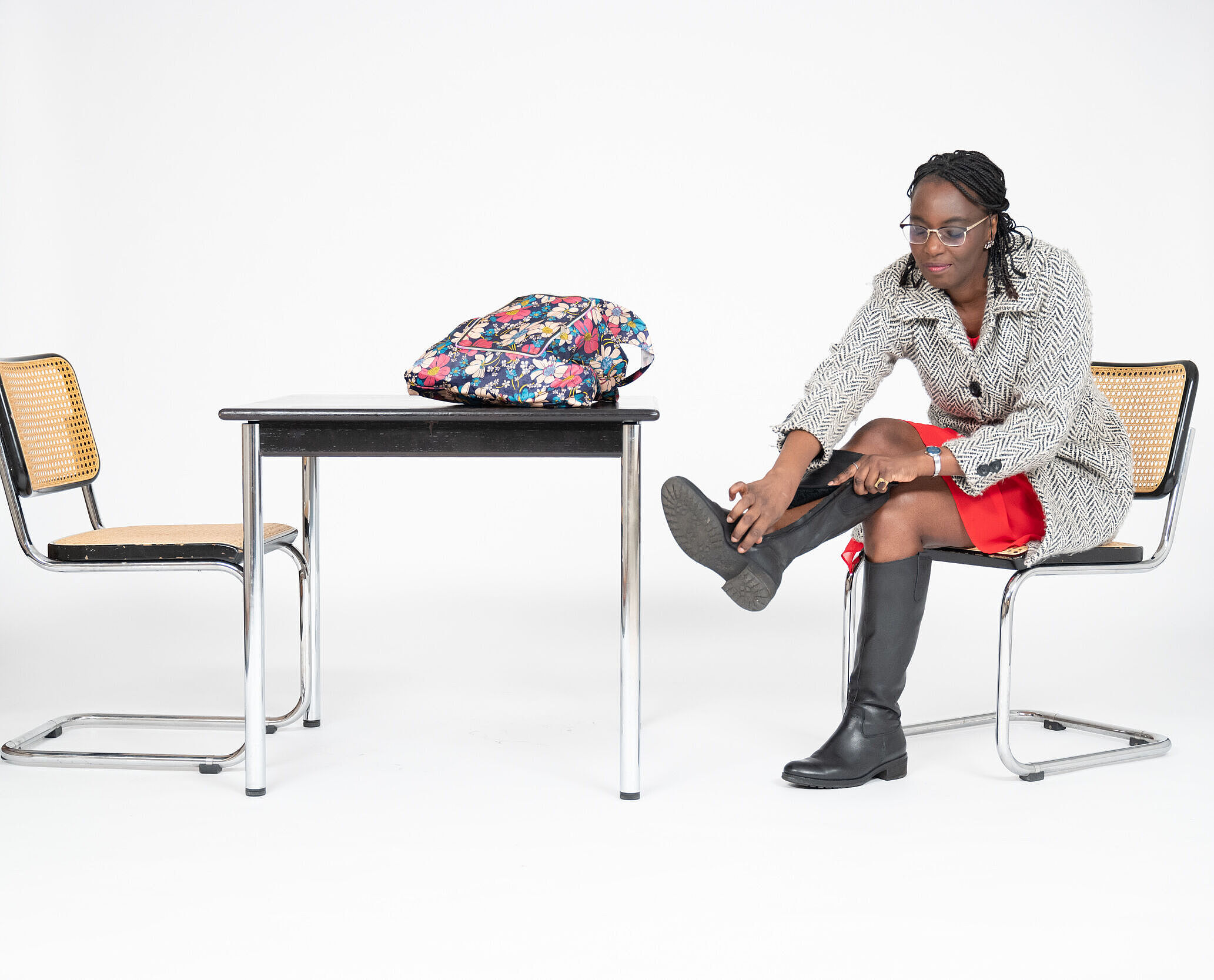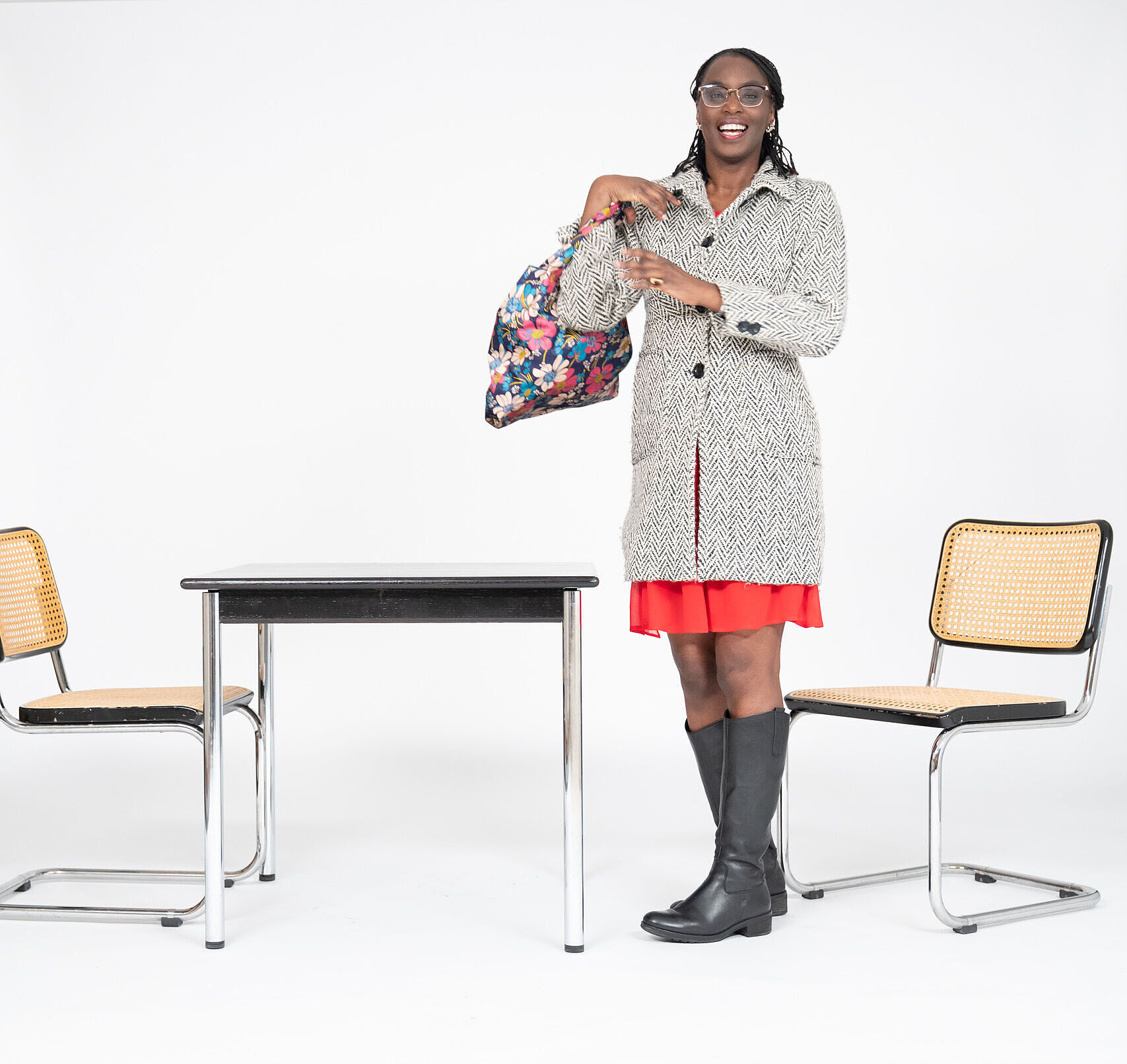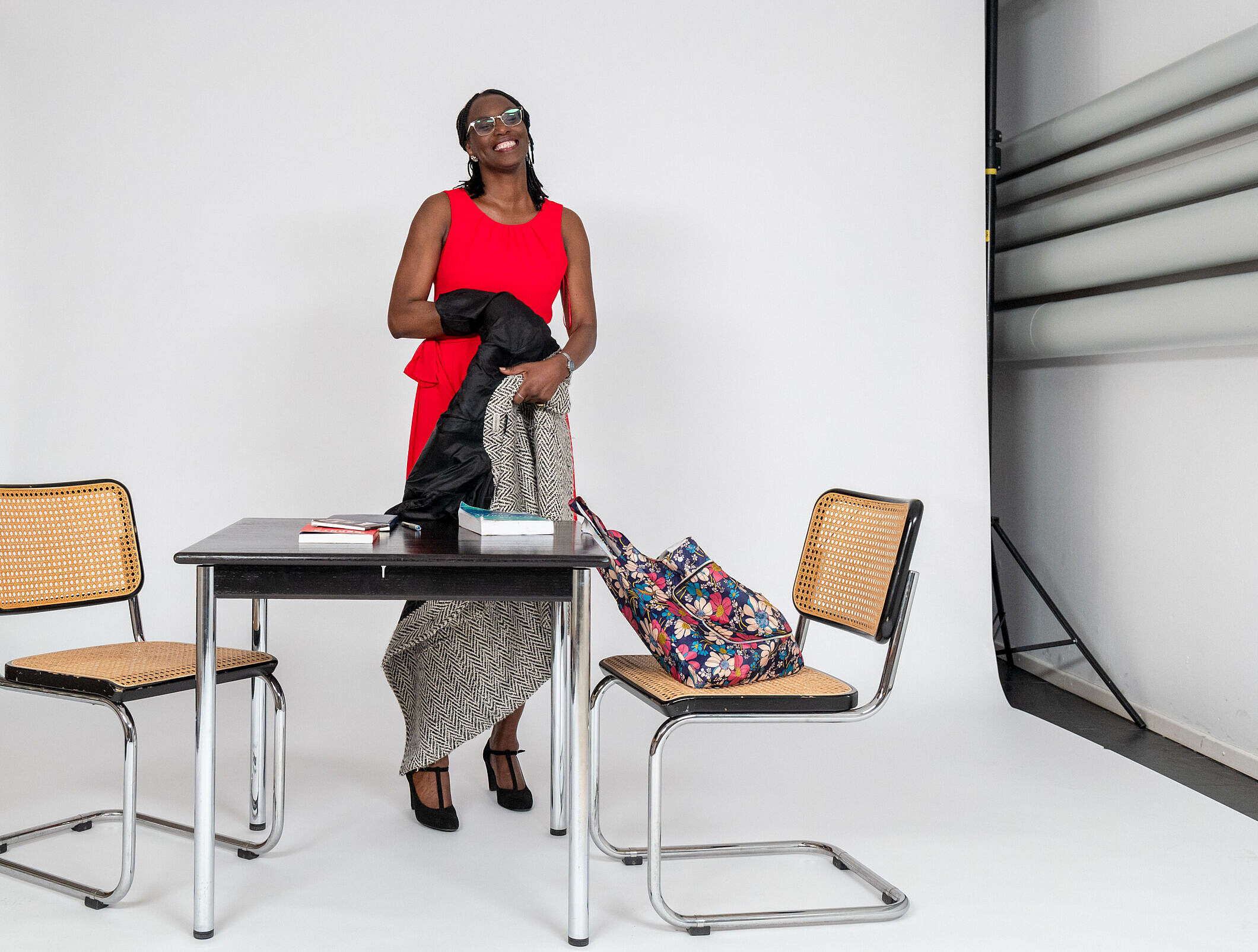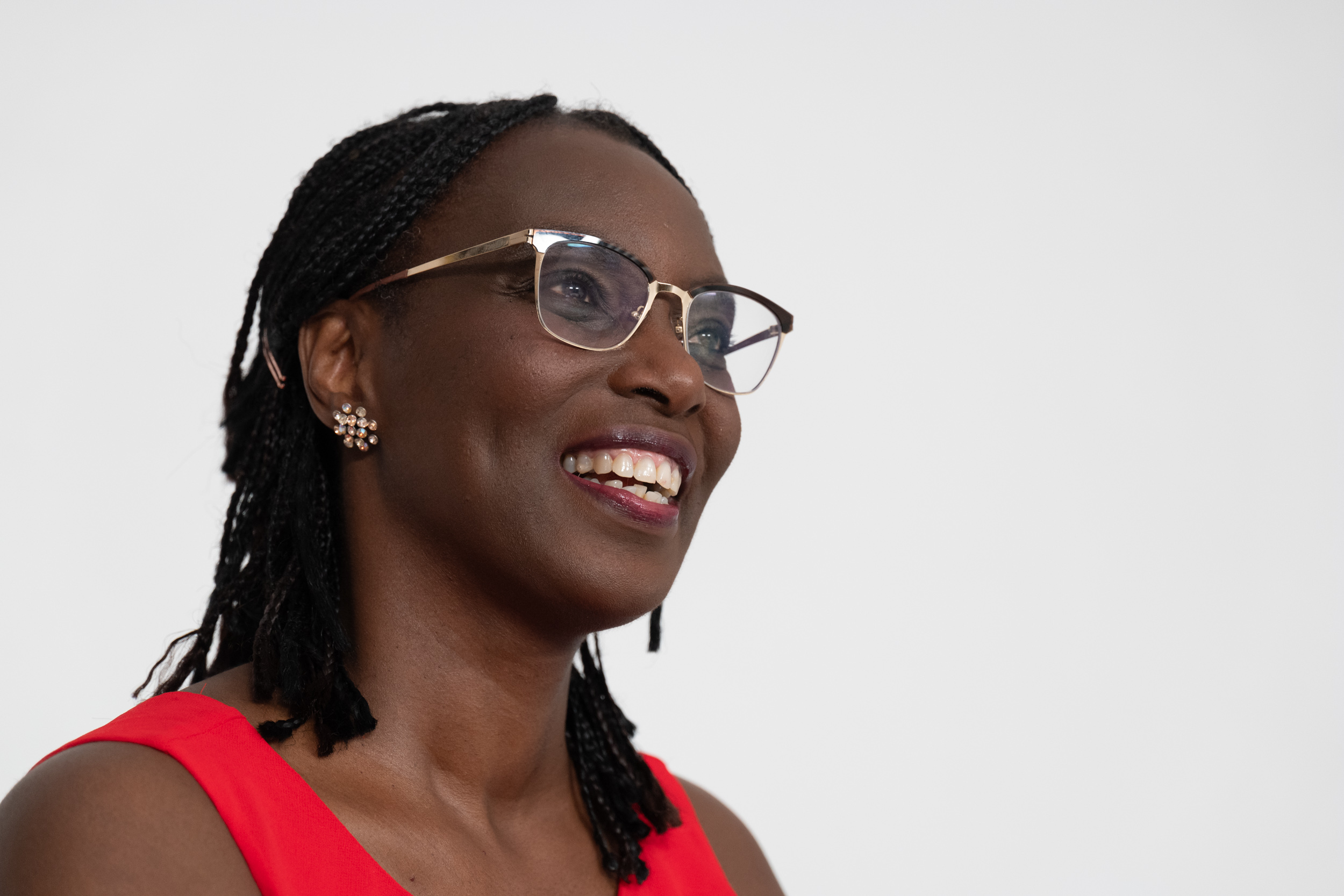Issue 14 / April 2019
Letter from Berlin
How to (Un-)Love a City in a Sequence of Moments
Seduction
Kurfürstendamm, the boulevard in Berlin, is already well enshrined in literature. Trees, cafes, theatres, the occasional boutique office, shops. It is a walking distance from Grunewald. It is the nineteenth of December 2018. The temporary sojourner in the city picks up convenient Christmas trinkets, thoughts of home, her people accompany her as silent ghosts. Winter is here. As are the lights adorning the trees. The streets are packed tight; the Christmas market is close by. All the objects that have evolved down the centuries to layer meaning into Christmas are on display; wreathes, snow, Tannenbaum. The flickering of a phrase newly learned, that is already familiar: Fröhliche Weihnachten. Walking out of the elegant department store, another of the ubiquitous shrines of commerce that leave little for either one’s soul or pocket (I have spent twice what I had budgeted for). Goodies in two bags, imagining how far away the M19 bus, now as familiar as an acquaintance, might be. Stepping out into the night.
And.
Stunned.
Stillness.
For it is snowing.
It is snowing.
(And she has not seen snow in eleven years.) And the flakes are those that one has only seen in picture books. Here are what snowflakes (the word) really looks like, feels like, tastes like; this is how it falls, this is how it appears as if from out of darkness. This is how it looks as it shimmers down the boulevard trees that sport fire-like dots of Christmas lights.
And.
She has not been aware that she has been pivoting, pivoting, turning, whirling. And her wonder is being observed by strangers, those mostly grim Berliners, who now have a bemused look on their faces, who when she notices them noticing her, smile as one. So she smiles back, and everybody suddenly laughs and laughs as the flakes sprinkle magic over coat-shrouded lives.
It is 22:48 hours in Kurfürstendamm, and there is a wrought iron bench next to a lit-up linden tree, and there is a woman from Kenya surrounded by damp shopping bags, whose black hat and coat are now white, and who, unperturbed, through a curtain of slow-tumbling snowflakes, has just seen her seventh M19 bus drive by.
Trepidation
When the KLM flight from Amsterdam, the last leg of a journey that started in Nairobi, crosses into German airspace, there are dense winter clouds. A window seat. It is the sixth of January and I am returning to Berlin, after spending a delightful Christmas session in Nairobi, my home. As we approach Berlin, something ordinary happens; the clouds dissipate as the plane noses its way in. And from my seat, I glance down casually. Birds-eye view of place. That sort of thing. Except that. Except that as the glance sweeps the city, in the part of the heart reserved for lovers and landscapes that seize the breath, in that closeted place within, a flutter. Unbidden, an illicit sense … of homecoming? And a surge, like an electric blast of … anguished joy. As if I have stumbled upon the wrong type of soul who will, inevitably, become lover, as if I know, despite myself that I shall commit adultery, with a city.
The shock.
Of happening upon a stranger.
And the stranger is oneself.
Some things are simpler to ignore.
That very night, I dreamed of our plane landing at Tegel Airport. In the dream, I watched myself descend the stairs, and kneel on the tarmac.
Dawn plea
Dear Berlin, I will not be one of your clichés. I cannot be one of those who, passing through you, find themselves lingering, enthralled. Stuck.
PS:
Can a city seduce a soul?
(Asking for a friend)
Backtracking
Spaces and places. I am Nairobi born, bred and fed, formed and imagined. I know Nairobi people, can pick them out from streets afar. I love the city. I hate the city. I have tried a hundred times to leave the city, but like Tagore’s homesick cranes, to the city I invariably return. I know her well. I am familiar with her scars, her wounds, her shadows. Nairobi home of unrequited ghosts, literal and figurative, whose persistent hauntings rely on the sustained commitment to amnesia of successive citizens. And I am one of those who are quick to forgive and forget her perfidies, for she inspires me, this city of mine. She makes me all those words that have come into fashion now: pluriversal; plurilingual; pluricultural, pluriselved. But last August she went too far; an incident with her inspectorate that not only left me bruised and torn, but also drove me into her belly, her dungeons, and revealed to me her farcical justice play, her wicked venality. She accused me with a lie. And she did this in a season of uncommon Nairobi cold.
It was on the cusp of my departure for Berlin.
I had been to Berlin before. But not like this; not when I was so cold in Nairobi that I told the taxi driver taking me to the airport, without a glimmer of irony: “I am going to Berlin for the sun. Soon I will be warm.”
“You are lucky,” he answered me, glancing at his temperature gauge: 6° centigrade. (Nairobi was offering testimony that ‘Climate Change’ also means global cooling). Ever since February, Nairobi had terrorized us with horrid temperature swings ranging from freezing to cold to barely cool and then back to chilly.
Kenyan woman flees the cold of Nairobi for the warmth of Berlin.
Literally.
Figuratively.
Heartfully?
I entered Berlin worried, glanced around the oft-maligned Tegel with new fondness. The air was warm. Stifling even. Good bone-warming. I had been concerned that the muses of story might look down their noses on the city and decline to deliver their treasure. It had happened before; landing in a place with every intention to create, but instead … nothing. Not even the suggestion of a spare word. However, no sooner had I settled in my Berlin room, than the impression of the protagonist squatting among leaves emerged. I wrote a paragraph of the story that first night. I even changed the story’s title.
Sunshine, light, a city spilling over into its rivers: The Spree. Bone-deep tension slowly dissipates. I have stopped looking over my neck wondering who lurks. People here; their terse kindness. Wandering the city, getting lost. And when I am completely lost, there are any number of those willing to guide me back to familiar stops. Like Nairobi, I sense that this is another in-between place; a transition zone city.
On the eight day, in the city, while waiting for a bus near Joachimsthaler Straße, a tall, pale woman of about six foot three, attenuated, long-faced, wearing a black ushanka, swathed in a semi-furry robe that covered a slinky burgundy dress emerged with her dog; a tall, thin long-haired, mostly white Afghan hound. She wafted past leaving a trail of perfume and eight gawking strangers, whom she ignored. We the enchanted were probably all strangers to the city, for the rest of its denizens continued as if they had not been visited by an apparition.
What.
Just.
Happens.
Trompe l’œil.
It should be a city of straight lines, like New York.
But it curves in unexpected places, like Rome.
And slips into a cul de sac like nowhere else, so that if you emerge you happen upon a theatre, a chemist, a bar, a garden, a dapper old man with a cane, who calls you mein Schatz, just because he can, and he is too old to care about political correctness, and it is only later, two weeks into German lessons that you realize you should have thanked him for his kindness.
Mein Schatz.
(oh my heart)
PS:
To whom it may concern:
(Asking for a friend)
What is the right emotion to bear when encountering an alien city that is trying to sneak into your marrow? An insidious attack that causes the heart to flutter? A city that compared to other cities, really has little that sets it apart. It is not Paris with its weary but elegant self-consciousness; it is not Rome and its ruinous splendor, its dominant pasts, it is certainly not London, or Lagos or New York; it is not Nairobi. There is nothing of the person asking in it. Its waiters are so rude, that they are a tourist artefact in themselves.
Relationship status:
It is (now) complicated.
Defense mechanisms
I have to put a little extra effort to resist the unexpected allure of Berlin. I actively seek its faults. They are mostly to be found in the bad habits and behavior of some of its people; the shop attendant at COS, who does not wish to touch the clothes I have tried on, for example.
Meanwhile, at the Wissenschaftskolleg zu Berlin in Grunewald, the 2018-9 cohort seemed to have fallen into one others’ hearts. A community is emerging, and it is good. One Saturday we even traversed the land in three cars heading to a beautiful place from where we witnessed the departure of migrating cranes.
The 2018 autumn in Berlin is a fierce and fiery burst of the colors of a good dying: orange-red-violet-browns. In the Grunewald forests I sat with a new friend and watched, for an hour, the leaves fall, and fall and fall. And the defensive need to find fault with a mercurial city dissipated just like that.
PS:
I have just used ‘unheimlich’ in a presentation. I was not trying to be clever or pander to my mostly German-speaking audience. It was the right and only word to use for that moment and context. It was only after I used it, articulated it, voiced it aloud with ease that I understood what I had done, and got flustered. Thank goodness for my shade of night skin; if it were not so, the fire on my face would have been visible as a red signal to all. They might have asked: for what do you burn? I might have had to stutter, to my embarrassment, for a city whose soul I do not know.
Notes from a German lesson:
Ich bin ein Berliner
Du bist ein Berliner
Er ist ein Berliner
Sie ist eine Berlinerin
Es ist ein Berliner
Wir sind Berliner
Ihr seid Berliner
Sie sind Berliner
Me: Wie sagt man: ‘I am not a Berliner’?
Lehrerin: Ich bin kein Berliner.
Winter is coming.
And I need new boots.
(or, ‘Deshalb sollten Sie Ihre deutschen Hausaufgaben machen’)
The shop is off Breite Straße. I have seen its boots on display the last two occasions I walked by. I am walking by, again, sort of meandering in the direction of a bus stop that will lead me back to Grunewald, that enchanted place. I walk past the window, three, four times, scrutinizing its contents. I think I should go in. I think I should not. I go in. ‘Just to see.’ A couple follow me into the shop. They hail the shop guardian, a buxom woman who is an advertisement for German stereotypes, the kind of woman who is most likely called Gretel, and should by all rights and purposes be dressed in a dirndl for the sake of unenlightened visitors craving a Deutsche cliché. The trio converse in rapid German, while I examine the boots, one by one. I soon evolve a criteria for myself in the boots that shall one day—not today—be mine: sturdy yet feminine, high yet tight around the leg, black to match everything, narrow-tipped, leather for endurance, lined for warmth, lovely to the touch. I am just about to leave the shop, more certain about that which I seek, when I notice that the voices have receded from the shop.
I was alone, and, let us call her Monika—just to sidestep stereotypes a little, but not too much—Monika had sidled up to me.
I leapt a little, startled.
She asked: “Wollen Sie einen Stiefel?”
Stiefel. I wondered. ‘Stiefel’. Was that the word for ‘boot’? Wollen Sie … Verbs … I remember my Lehrerin Ursula had mentioned something. Mildly panicked, I took a risk. “Ja!” It seems to work. Monika smiled.
“Ja!” I repeat. It is my first public “Ja” in Berlin. Not a small achievement, I think.
Monika brightens, blossoms, blooms.
I lose the will to make my escape from the shop (machen meine escape?) in German.
(My mind roils and turns: What is the word for ‘escape’? How does it sit in a sentence? Ich möchte ... Was ist das Wort “depart”? Regret: I should have been more diligent with my Hausaufgaben).
This was really not the right time for linguistic angst, especially since Monika had laid out an array of boots, had already pulled out a measuring device and secured the measurements for both my feet (she noted that my left foot is half an inch longer than the right—which is true) and jotted numbers down.
I dutifully studied each boot and nodded as if I were the Duchess of Somewhere being shown the efforts of the local crafts people. I observed that none of the boots Monika had produced were less than Euro 170. Monika’s body also stood between me and the door’s entrance. I touched each boot. Exclaimed appropriately here, chirped a little bit there. Somehow, like Sherlock Holmes, by deduction, Monika arrived to the criteria that I had imagined for myself regarding my ideal boot: Sturdy yet feminine, high yet tight around the leg, black to match everything, narrow-tipped, leather for endurance, lined for warmth, lovely to the touch.
With a teensy exclamation, Monika reached upward and pulled down a pair of boots.
The black pair was indeed sturdy yet feminine, high yet tight around the leg, black to match everything, narrow-tipped, leather for endurance, lined for warmth, and most lovely to the touch.
My inner spirit sighed, and the aspiration slipped out of my mouth. “Ja,” it must have said. But I do not remember. For Monika soon took me by the right arm and led me to a chair to sit, and she stooped and eased my foot out of the sneakers I had worn. She helped my feet into these. The perfect pair of winter boots. Of course, they fit. And I was Cinderella, not the step sister.
Monika beamed. I beamed and forgot that I had been scanning my soul for the German word for ‘escape’ (Verschwinden? Ausfahrt? Verlassen? Gehen?).
In a second, Monika was carrying one boot in the box, and I carried the other as ‘wir tanzten’ to the till, where Monika proceeded to calculate the cost of these, my perfect winter boots.
It cost what perfect winter boots cost.
Oh well.
My nieces shall inherit them.
But then Monika’s hands floated mid-tally. She paused, a frown on her face. A lament in her tone: “Wir haben kein ...” something I did not understand. I did understand the word ‘Nein’, a little.
“Nein?” I echoed. A paroxysm of some inner pain passed through her face. She shook her head, pursed her lips and made a suggestion, which ended on a “Ja”.
I did not hesitate. “Ja!” I echoed. I enjoy familiar territory.
I smiled.
Conspirationally, Monika produced another set of compound words. She winked. She sounded philosophical. “Ja,” I said.
This happened, with some variation of expression and emotion just a few more times.
“Ja!”
Finding greater confidence in exposing the use of that word publicly in Germany.
“Ja!” I was bold now.
The sense of well-being, the delusion of having at least started to have a conversation in Deutsch did not wear off, even after I had settled the bill that had somehow ballooned to double the price of the pair of the perfect winter boots.
Things started to make sense when Monika packed my new boots in a bag that was half my size, and all my boot accessories in two other bags that would weigh half my body weight. Thus loaded, Monika gently ushered me to the door, where we bid each other farewell as distant cousins might:
“Auf Wiedersehen,” said I.
“Well good-bye and good evening,” said she, her English only mildly accented.
My eyebrows moved ever so slightly upward.
Monika continued, “It has been such a pleasure doing business with you.” She concluded, “Genieße deine Stiefel.”
Stiefel is definitely ‘boots’, I surmised as I hauled my most unexpected bounty home.
(I give a stern yet firm look to anyone who turns to me, gawking askance as I stagger towards the bus stop to wait for my bus carrying my branded bags that leave no doubt about the contents therein. I comfort myself; I doubt that their boots have their own ‘special shampoo’? Do they have Sandalwood infused polish, or clean their boots with a soft cloth made out of the cleverest felt embossed with arcane signs? Exactly. My boots also have a shoe bag, a snow grip, three types of brushes, three types of polishes, but only one dye. My boots have insoles and tall boot shafts made out of eco-friendly, yet bespoke wood, that emit a real woody scent, suggesting to one that it is indeed real wood. I know. I know. However, do your boots have a customized conditioner that keeps them gleaming under all weather conditions? Exactly; I thought not. Mine do. But that you already knew.)
Heart-tremors
I
I have been invited to read at the Buchhandlung Dante Connection. I will go there out of gratitude, for they have been very active promoters of my books. They were one of the first in Berlin to stock my novel in both English and German. When I reach there, imagine my heart burst when I find that half of the Wissenschaftskolleg cohort are already there in solidarity? I will read for my colleagues, this other community, this type of family. I will read for them from the bottom of my heart.
II
Last night in Berlin, just after midnight, I was returning from visiting now-friends that feel like family, who are in Villa Walther. The night air was fresh, chilled. The sky was clear in a sort of deep velvet way. The adjacent lake looked as if it was emitting light from within. I slowed my walk to a saunter, contented. I was lost in musings until I became aware of breathing behind me. Not loud, just enough to alert me to the fact that I was no longer alone. My neck snapped back to look. At first I thought it was a smallish dog. It took three seconds to realize it was a lone fox. I forgot to be nervous because I was struck by its intense focus on an unseen horizon. It might have been determined to pretend that it could not see me, so I determined to pretend I could not see it. I waited, frozen, hair on the back of neck prickling as the reddish fox sauntered by. If I had stretched my left arm I would have touched it. I watched its progress. It turned into someone’s gate as if it had done this many times before.
Minutes later I was walking very slowly back to Villa Jaffé.
I hoped another passer-by would appear so that that I could tell them I had just met a fox on a mission. But it was a still and silent night in Grunewald. So I told the invisible moon that I was grateful for the red and furry poem it had sent my way. It was so much better than keeping the news to myself.
Topophilia
(From Greek topos “place” and -philia, “love of”) is a strong sense of place, which often becomes mixed with the sense of cultural identity among certain people and a love of certain aspects of such a place. (Wikipedia: en.wikipedia.org/wiki/Topophilia)
Place exerts power. That has been asserted by numerous scholars and geographers down the ages, including the inestimable Professor Yi Fu Tuan.
Berlin wins.
It has played a potent trump card that brought me to my knees. You see, this city plays a trick on the human heart; it does this by exposing its soul, its shadows, its darknesses. It has refused to conceal its ghosts, its sins, unlike all other places in the world I know, including my home city. Here, there are memorials to the horror of the holocaust; poignant emblems to the things that lurk in the human heart that can be employed to destroy humanity.
And then there are the Stumbling Stones.
One Friday we took a walk with colleagues to listen to the story lines of Grunewald’s spaces. Intimate stories of people with names like Braun and Rathenau. Here was the evidence of the tangible persistence of memory, the resonance of ancestors, who are no longer ghosts. An unguarded moment. Our guide, Petra Fritsche, be-gloved, lowers her head and body to wipe and shine the stumbling stones. Brightening them, so we might read the names as she speaks the story of lives brutally, terribly destroyed. It is how I learn about the Brauns of Villa Jaffé, where I live out my Berlin season. Lives inscribed into the present so they too become part of my memory, no longer strangers. My hosts. Human beings. Petra on her knees wiping the stones that are like scars on the surface of a wounded land. It is a holy moment. A door into truth opens in that moment. A people can find the courage to live with their horror revealed; they can live with their wounds exposed without denial, pretense, or excuses. They can live, and even thrive while remaining vulnerable to their reality. It does mean that one might be willing to sometimes stoop, sometimes kneel, to breathe, to listen, to name; not resisting. Nothing is lost; neither the horror nor the grace.
And somehow, immediately after that moment, a whispered inner question from the city:
This; can you love even this?
The city naked.
There are no further excuses.
“Ja,” I succumb. “Ich werde die Stadt lieben.”
True, it will be an imperfect love, but that too is also good.
More on: Yvonne Adhiambo Owuor
Images: © Maurice Weiss
